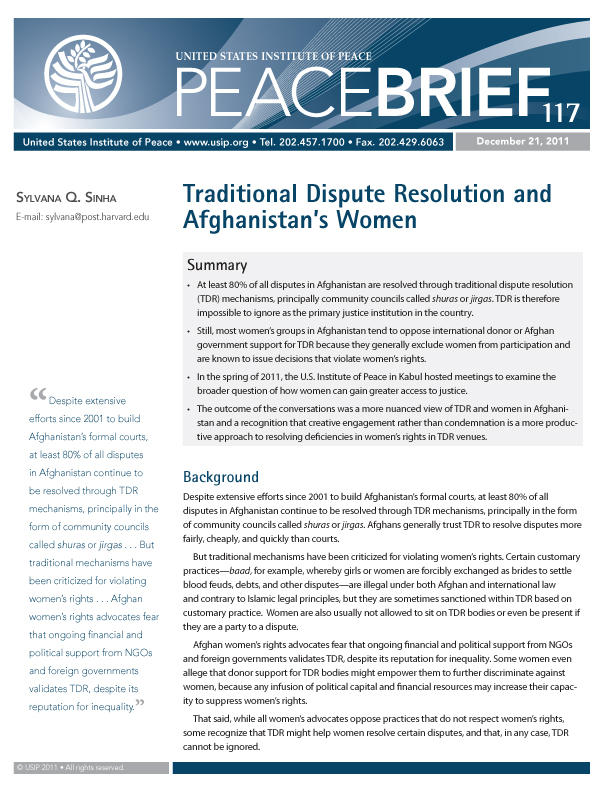Traditional Dispute Resolution and Afghanistan’s Women
This brief is based on recent discussions USIP held in Kabul on traditional dispute resolution (TDR) and women’s rights. Based on these discussions and USIP’s research, it outlines recommendations on how to increase access to justice for women. Sylvana Q. Sinha served as rule of law adviser in USIP’s Kabul office from November 2010 to November 2011.

Summary
- At least 80% of all disputes in Afghanistan are resolved through traditional dispute resolution (TDR) mechanisms, principally community councils called shuras or jirgas. TDR is therefore impossible to ignore as the primary justice institution in the country.
- Still, most women’s groups in Afghanistan tend to oppose international donor or Afghan government support for TDR because they generally exclude women from participation and are known to issue decisions that violate women’s rights.
- In the spring of 2011, the U.S. Institute of Peace in Kabul hosted meetings to examine the broader question of how women can gain greater access to justice.
- The outcome of the conversations was a more nuanced view of TDR and women in Afghanistan and a recognition that creative engagement rather than condemnation is a more productive approach to resolving deficiencies in women’s rights in TDR venues.
About This Brief
This brief is based on recent discussions USIP held in Kabul on traditional dispute resolution (TDR) and women’s rights. Based on these discussions and USIP’s research, it outlines recommendations on how to increase access to justice for women. Sylvana Q. Sinha served as rule of law adviser in USIP’s Kabul office from November 2010 to November 2011.



